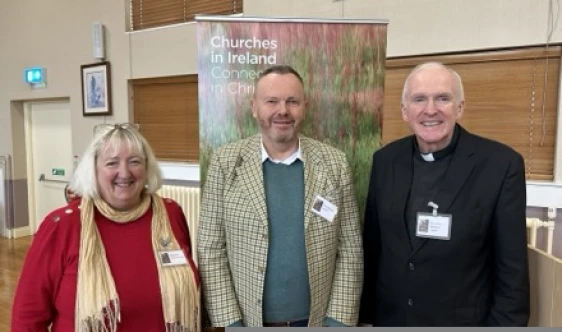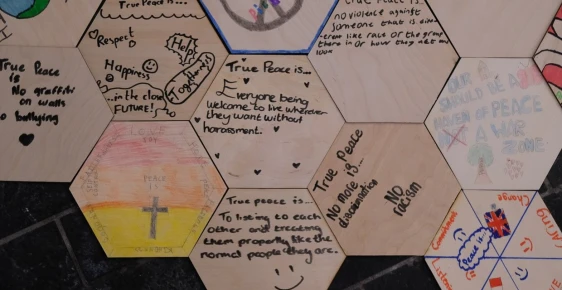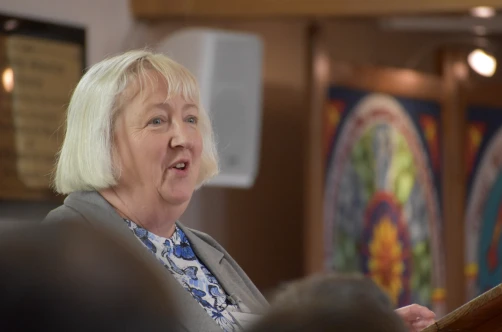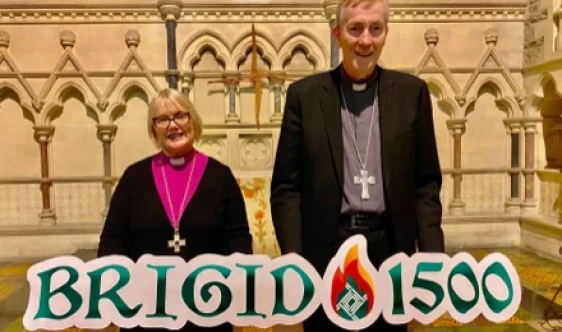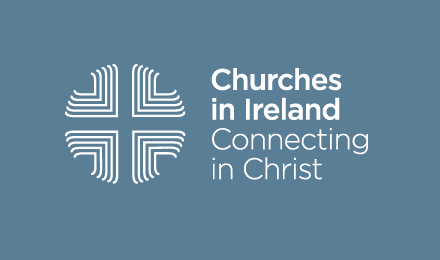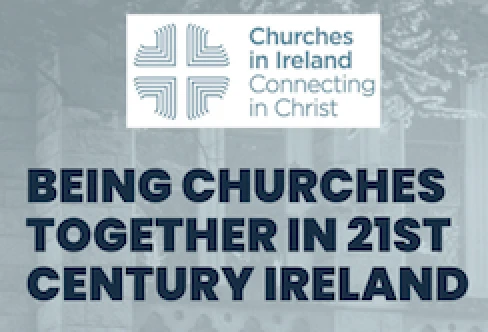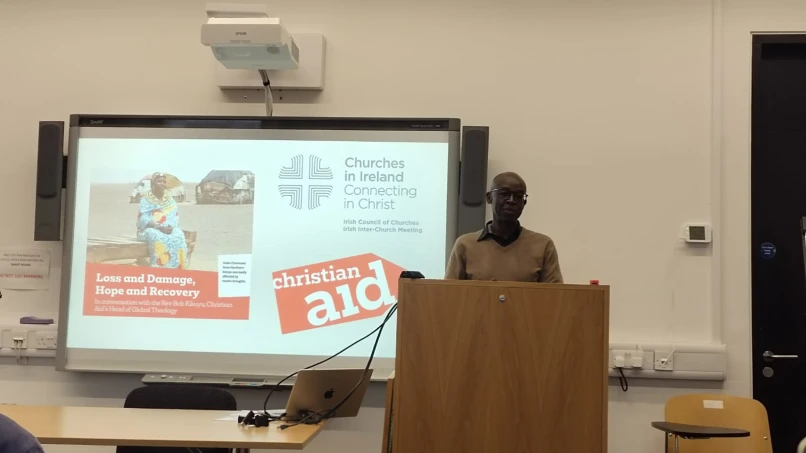
The impacts of the climate crisis are already being widely felt, devastating the lives of millions globally and destroying livelihoods.
In Eastern Africa, five failed rainy seasons have led to the worst drought in forty years affecting Ethiopia, Kenya, Somalia, and South Sudan. Some climate impacts can be adapted to, but Loss and Damage occurs when the limits of adaptation are reached and the effects of climate change can no longer be minimised.
Last month, the Irish Council of Churches joined with Christian Aid to organise an event to reflect theologically on the Loss and Damage caused by the climate crisis. Rev Bob Kikuyu, Christian Aid’s Head of Global Theology, led the event in reflections and also suggested ways in which we can find Hope and Recovery.
Rev Kikuyu spoke from ‘A theological reflection on Loss and Damage‘, a Christian Aid discussion paper. You can find the full document here: https://www.christianaid.org.uk/sites/default/files/2022-10/loss-and-damage-a-theological-reflection.pdf The following are excerpts from the paper.
Countries have increasingly focused on the question of how to address the effects of climate disasters and consequences. “The phrase “loss and damage” can refer to permanent loss or repairable damage caused by the manifestations of climate change, including both severe weather events and slow–onset events, such as sea level rise and desertification. It can also refer to economic or noneconomic harm, such as loss of life, livelihoods, ecosystems, or cultural heritage.” But we also recognise that Loss and Damage is a failure of humans.
Loss and Damage is firstly a matter of justice. When fully considered, those living in poverty are more likely to experience Loss and Damage because they are less likely to be able to adapt to a given climate impact. They have neither adequate tools nor resources to plan for climate crises, also considering that the challenges they face are often multi–dimensional. Yet at the same time, they are also far less responsible for contributing to climate change.
Loss and Damage is essentially then a recognition of human failing. It is what happens when climate change cannot be mitigated or adapted to. There have been several attempts at this, yet each high–level climate conference after another seems unable to actually meet the level of expectations, especially for the most affected nations who we mentioned have contributed least to the problem. Loss and Damage is an expression of humans further breaking creation, and of dislocating our relationships with each other. It could point to the possibility that we too have suffered a form of moral loss and damage.
Loss and Damage by definition means that we are past the critical point of mitigation and adaptation. But it should not suggest a paralysis of intent and action. If indeed it is because of misunderstanding our role, hope should lie in reclaiming that role and actively seeking to live it out. We must continue with our efforts in mitigation and adaptation. This is what we could call repentance by seeking to right what is wrong. It can be viewed through the lens of the Ephesians Chapter 4 Principle – putting off the old self and putting on the new; we stop what wrong we have been doing and start doing what is right. If as someone said, the next best time to plant a tree is now, equally the next best time to change course and do the right thing is now.
Rev Kikuyu asked if the churches can act prophetically and non–confrontationally, as Nathan did with David, to provide a context for reflection and change.
Following Rev Kikuyu’s presentation Ross Fitzpatrick, Christian Aid’s Policy & Advocacy Officer spoke about their work advocating for climate justice. Loss and Damage was Christian AId’s central “ask” in its advocacy to Government prior to the COP27 negotiations and it is encouraging that it was eventually put onto the agenda and agreement was reached to provide for a dedicated Loss and Damage fund. This, however, is only the beginning of the journey – he likened it to the provision of a bucket – but the bucket is yet to be filled. It was nevertheless most encouraging and showed that the ongoing lobbying and advocacy of Christian Aid – along with many other organisations – can have a tangible impact.
You can find some writing and resources on climate justice and care of creation on our website at irishchurches.org/climate and irishchurches.org/voices.
